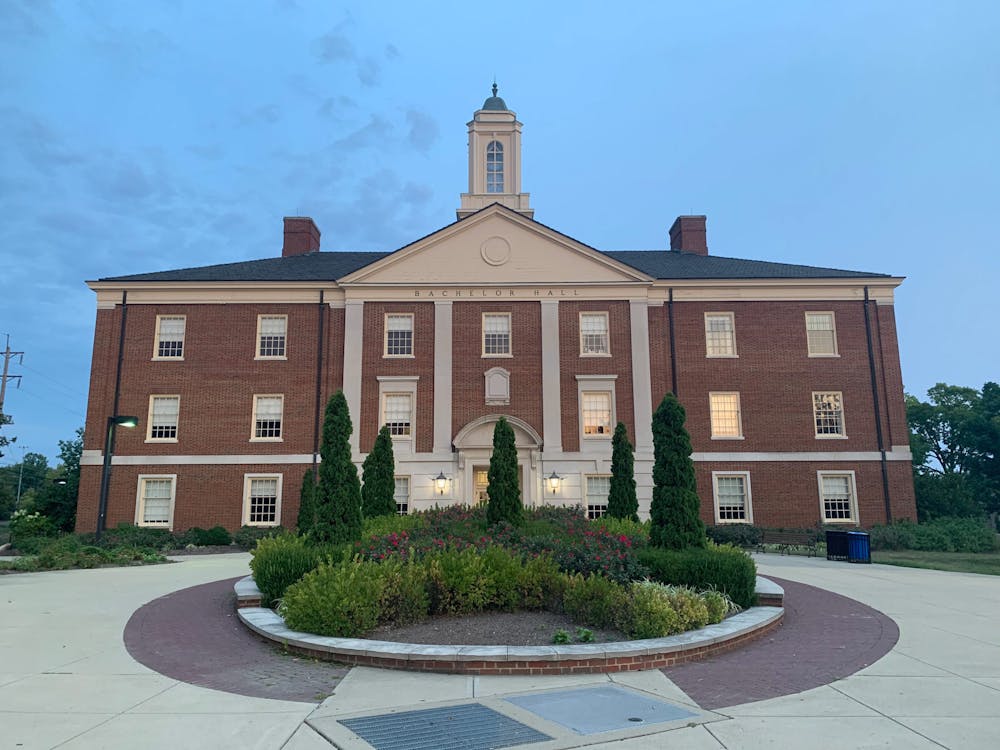Gov. Mike DeWine signed Ohio Senate Bill 1 (S.B. 1) on March 28, effectively putting it into law. The repercussions have already made their way to Miami University. However, S.B. 1 officially takes effect at the end of June, according to University Communications.
While the bill was making its way to DeWine’s desk, the Office of Liberal Education announced a name change over email to the Diversity, Equity and Inclusion (DEI) category in the course list, Degree Audit and Bannerweb.
The Miami Plan Perspectives Area of DEI is being renamed Ethical Citizenship & Leadership (ECL).
“This is a name change only,” the email stated. “It does not add any new requirements or impact your graduation hours.”
However, in an email chain given to The Miami Student, one professor argued that it’s not simply a renaming. He wrote that the ECL designation carries a new set of student learning objectives which were created so courses with the old DEI designation would fit the new ECL designation. The ECL will be applicable to certain courses that wouldn’t have met the requirements for the old DEI designation.
“I think [the name change] makes sense for what the bill proposes, but I do think it's kind of undermining the purpose,” Ta-Niyah Darden, a junior biochemistry major, said.
Kali Barcroft, a first-year political science major, had a similar sentiment.
“If that's their way of hiding it, then fine, as long as we're still representing those core values that DEI stands for and that Miami stands for,” Barcroft said. “If it's just the name change, then so be it.”
Later in the month, on March 31, University Communications sent out an email to all students with an update on S.B.1.
“As we navigate these changes to comply with the law, we will be guided by our core values of Love and Honor and our enduring commitment to providing a supportive community where all students, faculty and staff can thrive,” the email stated.
Revisions at Miami will include faculty workload, evaluations and reviews, striking, courses, syllabi, institutional costs, intellectual diversity, DEI and ensuring equal treatment, institutional relationships with China and more.
Barcroft led the S.B. 1 protest on March 19 before spring break with the Ohio Student Association and said she felt like the work they had done all semester was for nothing.
Enjoy what you're reading?
Signup for our newsletter
“It was actually heartbreaking [when I heard it was passed],” Barcroft said. “It’s scary. I’m not even gonna say like as a woman or like as someone in an underrepresented field. It's just scary as a student in higher education, what this is going to do to our universities across the state.”
At the University Senate meeting on March 31, four people addressed the senate regarding S.B. 1, and many of the senators interjected their own thoughts during the meeting.
The Vice President for Research and Innovation Susan McDowell, who is also a research fellow with the Association for Public and Land Grant Universities, updated the senate on changes in grant funding that have been coming through federal agencies across the country.
She said overall there isn’t going to be a large impact on Miami’s grants. The greatest threat would be to individual cases of opposing S.B. 1. McDowell said the approach so far is to not breach the current agreements with federal agencies, either through direct award dollars coming in from the National Science Foundation or National Institutes of Health, or as sub-recipients.
“About half of our federal funding comes into Miami through partnerships that we have, for example, with researchers at Yale,” McDowell said. “So we're a sub-recipient of an award that Yale received directly ... And if we have not been told directly, to stop doing that work, then we continue to do the work as long as there were award dollars there, because otherwise we'd be in breach of those agreements.
Media, Journalism and Film Department Chair Rosemary Pennington also expressed concerns with the passing into law of S.B. 1.
“The law attempts to regulate class discussions, according to the Ohio Capital Journal, and will force faculty evals and syllabi in some form, to be placed online,” Pennington said. “As someone who has faced death threats for the work they do, and who has been attacked by white supremacists, I do not feel safe in this environment, and I know many [others] don’t feel safe. I hope that our institution and institutions across Ohio are working to ensure that their faculty and staff are safe to do the work they've been hired to do, and that their students get the educational safe haven.”
More information about specific changes will be shared with impacted divisions later this semester through a soon-to-be-established legislative information page on Miami’s website, according to the University Communications email.




